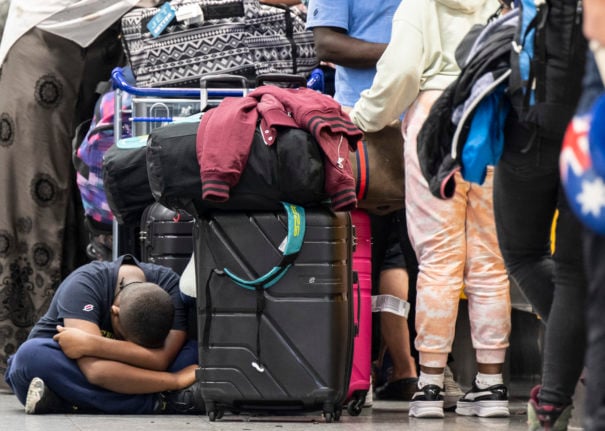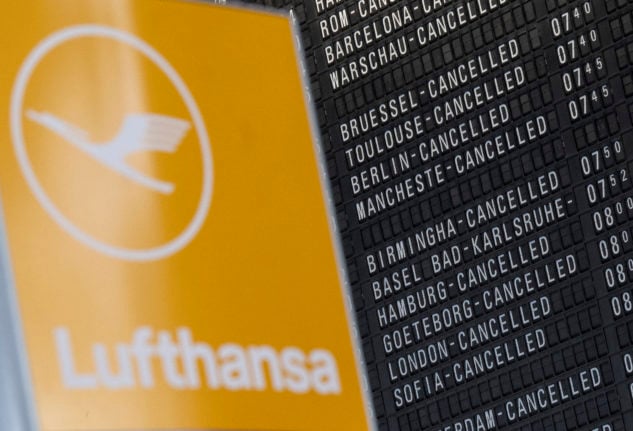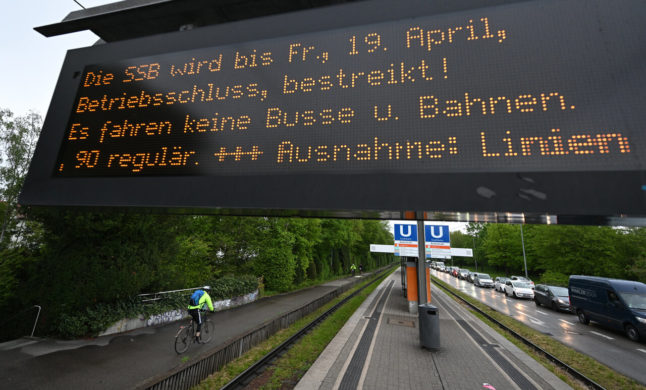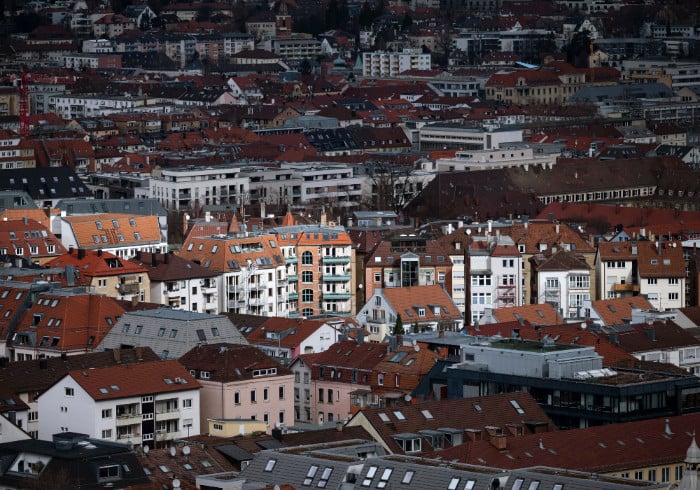What’s happening?
The pilot union Cockpit has called a full-day strike, urging around 5,000 Lufthansa pilots to walk out on Friday.
The move came after pay negotiations between the union representing staff and the German airline collapsed.
Who is affected?
Lufthansa announced on Thursday that more than 800 flights would be cancelled, affecting around 130,000 passengers. The airline has axed “almost all” of its flights to and from its main German hubs in Munich and Frankfurt on Friday.
A notice on Munich airport’s website said: “As a result (of the strike), there will be delays in operations and flight cancellations. All travellers who have planned a Lufthansa flight from Munich during the strike period are asked to check the current flight status with their airline or tour operator well in advance.”
Frankfurt airport also warned of cancellations throughout the day on Friday.
(1/3) Due to a strike by the “Vereinigung Cockpit Union (VC)”, representing Lufthansa pilots, cancellations will occur at Frankfurt Airport throughout the day. pic.twitter.com/OTlDJhSyX7
— Frankfurt Airport (@Airport_FRA) September 2, 2022
There may also be follow-up cancellations or delays at the weekend, and some connections were also cancelled on Thursday, Lufthansa said.
The walkout officially began at one minute past midnight. In the early hours of Friday, the first scheduled connections in Frankfurt and Munich were shown on the departure boards as being cancelled.
READ ALSO: Lufthansa cancels ‘almost all’ flights in Germany over strike
Passengers have been urged not to come to airports, but to switch to taking the train or move their flights to another day.
They are entitled to refunds – and possibly compensation – in the event of cancellations or long delays.
“The pilots’ union Vereinigung Cockpit has called on Lufthansa cockpit staff to go on strike for one day,” said Lufthansa in a statement. “For this reason, there will be a major restriction in the Lufthansa flight programme on Friday, 2nd September. All affected guests with contact details in the booking were informed via SMS or mail.”
As it’s the last holiday weekend before schools return in the German states of Hesse, Rhineland-Palatinate and Saarland, many families with young children will also be affected.
READ ALSO: What are your rights in Germany if your flight is delayed or cancelled?

According to the Vereinigung Cockpit union, only Lufthansa’s core airline and Lufthansa Cargo departures from German airports will be subject to the strike.
Subsidiaries Eurowings, Lufthansa Cityline and Eurowings Discover are not affected by the industrial action and are expected to fly as scheduled.
The same applies to foreign Lufthansa subsidiaries such as Swiss, Austrian or Brussels.
Lufthansa flights from non-German departure points will also take place, provided aircraft and crews are already abroad, the firm said.
Passengers are asked to check Lufthansa’s site for more information.
Why are pilots striking?
The pilot union Cockpit is seeking a 5.5 percent wage increase by the end of the year, automatic compensation for inflation and an adjustment of its salary grid.
Lufthansa said the entire package sought by the union would raise pilot staff costs by 40 percent or €900 million.
The union argued ahead of the strike that to avert labour disputes, the airline must “present a significantly improved offer”.
But Lufthansa slammed the industrial action call by the pilots’ union.
“We lack any understanding for the VC’s strike call,” Chief Human Resources Officer Michael Niggemann said on Thursday. “The employer side has made a very good and socially balanced offer – despite the lingering burdens of the Covid crisis and uncertain prospects for the global economy.”
In July, the Verdi union called a strike urging Lufthansa ground crew staff to walkout which resulted in more than 1,000 flights being cancelled and around 134,000 passengers having to change their plans. They later managed to reach a deal, averting more strikes.
READ ALSO: Lufthansa strike causes travel turmoil in Germany
It comes amid a summer of chaos for air travel in Germany and Europe. Airports and airlines have struggled with staff shortages following the lifting of pandemic restrictions and subsequent boost in demand for global travel. Many companies had sacked staff – or had seen their staff leave to find other jobs – during the pandemic.




 Please whitelist us to continue reading.
Please whitelist us to continue reading.
Member comments